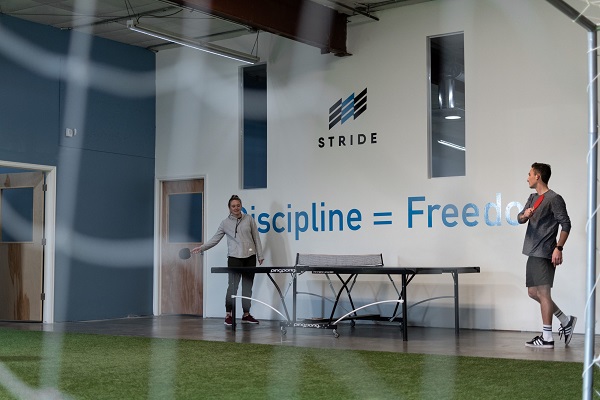ASU alum harnesses “the gift of ADHD”
As I spoke with Brandon Slade over the phone, a few sounds coming from his end had me thinking he was at a gym or in the middle of a workout. However, Slade was simply taking a walk in the park, one of his preferred ways to maintain concentration.
“I can’t focus or read when I sit still, so I don’t even try,” Slade said.
Slade, who was diagnosed with attention deficit hyperactivity disorder at a young age, has gone on to have a long and fulfilling career as a teacher in special education at Louisville Middle School in Boulder, Colorado. In 2010, he graduated from ASU with a Master of Education in special education and previously earned a degree in psychology from the University of Colorado. Throughout his own time in the school system, Slade found that he learned and retained information best through audio books — he would complete his class readings while hiking or exploring nearby walking trails.

The Navy SEAL motto “discipline = freedom” is a fundamental concept at the Stride Learning center.
Slade knew that the traditional school system often leaves students with ADHD and similar learning disabilities on the outside looking in. Even when schools are able to offer additional guidance and flexibility, many students are still learning within classrooms and schedules that work against their learning preferences.
Slade knew that students with ADHD need a more hands-on, individualized style of learning, and in 2010, he founded Stride, a learning program that helps students discipline their gift through two unique factors — mentor relationships and movement.
“The typical place for kids with ADHD to get services looks like a doctor's office,” Slade said. “We’re highly active and struggle sitting still, and that energy is a gift, so we tried to create a place to fit what those kids need.”
ADHD affects the executive functioning part of the brain. Two important brain functions that fall under executive functioning are self-regulation and planning abilities, which is why many students with ADHD struggle to create schedules, make it to class, turn in assignments on time or even break an essay or paper into manageable pieces.
Driven by the Navy Seal motto “discipline equals freedom,” Stride pairs each student with a mentor who helps break their workload into manageable chunks. Throughout the week, mentors check in on their students to hold them accountable in reaching their goals.
Slade said a consistent routine is a simple yet extremely effective catalyst for students with ADHD.
“Once they had the organization and the habits and routines and learned how their brain works, they turned out to be absolute superstars,” Slade said. “They had this gift, they just needed to figure out how to discipline their gift.”
Slade said one reason why the typical school day works against students with ADHD is because many of them develop their skills and talents through their ability to hyperfocus.
“Most people don’t think about it, but the gift of ADHD is the ability to hyperfocus,” Slade said. “Once you get into something, you get really deep into it. When you’re having to switch classes every hour, switching from one task to another, we struggle with that, so if we have the ability to dive deep, it's super helpful.”
It can also be helpful for students to be active while learning a new skill or absorbing new information — sitting still is a common struggle for students with ADHD. Stride’s learning center in Boulder, Colorado, is designed to merge mind and body.
“For middle school and high school kids, we have a football field, so they can learn Spanish while tossing the football,” Slade said. “For younger kids, a classic thing we do is jump on the mini trampoline while learning multiplication facts. We see their retention go way up when they’re not forced to sit still.”
For Stride, learning is more than taking manageable steps toward completing assignments and projects — it’s also creating an environment that encourages consistency.
“A lot of what we do is parent education,” Slade said. “A very common thing that helps our families is a sacred study space. It’s where a kid uses it for studying and studying only. We want as much as possible for them to do their homework at the same time in the same location. Little routines like that and simple stuff like having the kid pack their backpack and putting it next to the door in the morning. That takes so much stress off the families and you’re not starting off the day yelling at each other.”
Ultimately, Stride aims to change the misconception that ADHD inhibits the ability to learn or develop your passions in the real world so that students can embrace their idiosyncrasies.
“That’s the goal for our learners — for them to understand that there’s no right or wrong way to do this, there’s just how your brain works,” Slade said. “The fact that your brain works differently is amazing.”
ASU students can connect to campus resources for learning disabilities through Student Accessibility and Inclusive Learning Resources.